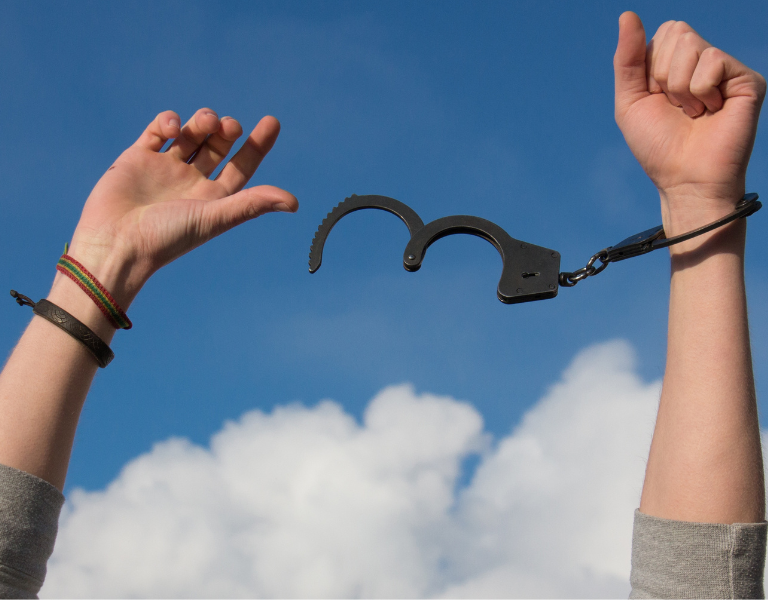
Emma Jackson,Scotland Director,Christians Against Poverty
At the start of this month, I marked five years leading the work of Christians Against Poverty (CAP) Scotland. A lot has changed in that time - not least my kids' accents as we moved from East Belfast to the rural Borders to take on this role! Our team has grown significantly, we’ve built new relationships across civic society and adapted to new ways of working during and after the pandemic. There’s been a lot to celebrate. However, it’s incredibly hard to accept that five years later, the material circumstances of people in debt are worse than when I started this role.
A decade of declining income in real terms and crumbling social security has eroded financial security across the UK, leaving many without a savings buffer to turn to. By the eve of the COVID-19 pandemic at the start of 2020, a staggering four in ten (39%) UK adults (20.3 million) did not have sufficient savings to fall back on if they lost their main source of income. More recently, polling by the Diffely Partnership for Understanding Scotland found that one in four of us could not cope with an unexpected bill of just £100.
The cost of living crisis has dealt devastating blows to people across Scotland, with hundreds of thousands pulled into the storm of financial difficulty without a buffer to fall back on. Our latest YouGov polling at CAP revealed 932,000 people in Scotland have relied on credit cards, overdrafts or loans to cope with rising costs and pay for everyday essentials.
Undoubtedly most of us have felt the impact of rising prices, however the disproportionate effect on those with the lowest incomes is deeply concerning. Our Taking on UK poverty report outlines the overwhelming reality many are facing. In 2022, the average income for new CAP clients in Scotland was just £12,688 (after housing costs), lower than CAP clients anywhere else in the UK. During that period, 84% of new CAP clients in Scotland were in receipt of social security, of which one in two had a deduction taken, putting even further strain on an already limited budget.
There has been a significant increase in clients with Council Tax arrears now impacting almost two thirds of new CAP clients in Scotland (63%). This is alongside rising energy arrears (33%) and rent arrears (35%) as people are struggling to stay afloat and afford the essentials. Demand for our emergency aid (food and energy top ups) is at an all time high. In February 2023, we saw a 200% increase in requests for emergency aid compared to February 2022.
Debts are rising. The red letters, phone calls, wage arrestments, bank arrestments. The constant fear and pressure can be all consuming, and yet people feel embarrassed and ashamed so hide their debt from family and friends.
There’s a particular stigma and shame that exists around problem debt, which holds people hostage. ‘People will think it’s all my fault, that I’m a failure’ are words we hear far too often. So people wait. Try to keep going. One in two of our clients waited for at least a year, almost a quarter (23%) waited more than three years before seeking help.
We know that remaining in a debt crisis has a significant impact on mental and physical health. The vast majority of new clients told us debt had negatively impacted their mental health (81%) or physical health (90%). This winter so many people went cold and hungry as they faced the brutal reality of having insufficient income.
There’s a long established link between debt and mental ill-health and in 2018, tragically around a third of our clients had seriously considered or attempted suicide because of problem debt. It is completely devastating for us to report five years later, this figure now sits at 50%. One in two of the people we work with believed suicide to be their only option when they first contacted us. I will never find those words easy to write.
I recently recounted some of the experiences of our clients to a BBC journalist: a man unable to afford the funeral of his wife; a family with a newborn about to lose their home; an elderly gentleman who hadn’t eaten for 8 days. Each set of circumstances both utterly heartbreaking and completely outrageous. It caught me off guard at first. The lump in my throat. The sting in my eyes. We must never become desensitised to the injustice of poverty and the relentless cruelty it perpetuates. And yet, we must hold on to hope. Poverty is not inevitable. We can do things differently.
My deep hope, and prayer is when I take some time to reflect back in five years time, not only have the circumstances of people in debt significantly improved - but there are far fewer people needing the support of Christians Against Poverty.
Problem debt can happen to any of us, mostly due to unexpected circumstances. We cannot eradicate it, but we do have the opportunity to prevent tens of thousands of people experiencing debt by guaranteeing all of our citizens have sufficient income to live on.
In a just and compassionate Scotland, we must work together to ensure not only an end to poverty, but the opportunity for everyone to flourish. Our road ahead must be built on the foundational principle that everyone should have sufficient income to live a decent, dignified, healthy and financially secure life. Alongside a fit-for-purpose infrastructure to provide the housing, transport, health and social care we all need. We need bold, targeted and urgent action from Government at all levels to make policy reality - people’s lives really are depending on it.


Enter your email address to receive regular e-updates about our work. If at any time you want to stop receiving these, simply contact us. We’ll keep your details safe and won’t share them with any other organisations for their marketing purposes. For full details see our Privacy Policy.